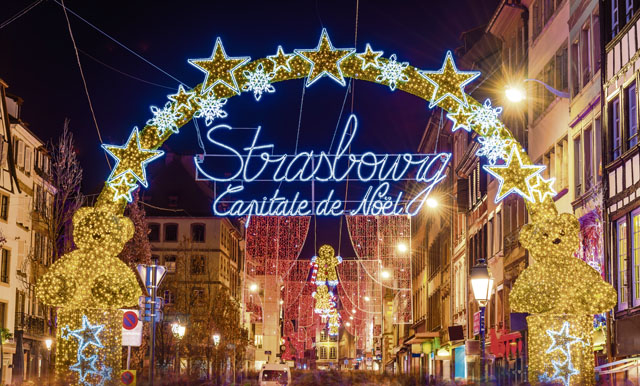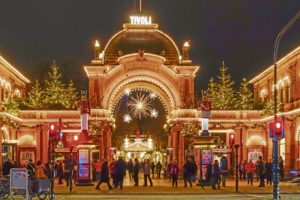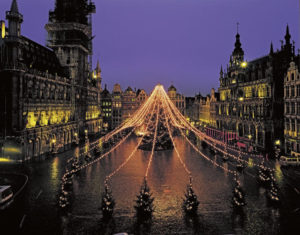
The best Christmas markets are wonderlands in the truest sense of the word. They are filled with lights, garlands, pines, warm drinks, comfort food, holiday music, glittering gifts and bright laughter. Visiting one can be transformative. Surrounded by beauty and glad tidings, you remember: the holidays are about gratitude, giving and renewal.
Because Europe is home to a wealth of great Christmas markets, it can be difficult to decide which one to visit. Your neighbors, colleagues, and travel agents will have opinions. The Internet abounds with advice. If you’re trying to find the best Christmas market in Europe, where do you start?

Data can help! In order to guide us more effectively toward these magical places, I analyzed a Santa’s sled worth of research and recommendations (see sidebar for more about this) to see which Christmas markets emerged as the best of the best.
Overall, there’s great news: you live in the epicenter of Christmas market excellence. Here are four recommendations for getting out there and finding your best Christmas market.
Visit the best of the best…as a day trip. Nuremberg’s iconic Christkindlesmarkt, which remains open until Christmas Eve, is a short drive or train ride away and is literally recommended by everyone. With a tradition that stretches back almost five hundred years and a stunning array of sights, sounds, and scents, Nuremberg represents the classic ideal for what a Christmas market should be.
Cross the border and experience brilliance. Brussels’ Grand Place is an epic sight during ordinary times. During Christmas market season – which lasts through January 6 – the lights, architecture and ambiance combine to make the place staggeringly beautiful. The Belgian capital is a reasonable (350 km) drive from the KMC. For something even closer and almost as ancient as Nuremberg’s, consider Strasbourg (200 km away). Open through December 30, the lights, stands, and enormous cathedral will take your breath away.

Take a long weekend and go east, or north, or really north: If you want to stretch your horizons, head east to Prague or north to Copenhagen. The lights, atmosphere, and architecture in Prague’s Old Town are stunning, and part of why it was universally recommended as a “best” destination. The Prague Old Town market is open during all major holidays from early December to January 6. You could also spend the holidays with Santa and roller coasters at the Christmas market in Tivoli Gardens, Copenhagen’s magical amusement park, open through December 31. For those who want a true stretch goal, fly to Tallinn, Estonia, and bask in fairy tale lights, northern weather, and history: the city’s Town Hall Square has hosted Christmas trees since the 1400s.
Go underground in Valkenburg: This one tends to be missed on “best of” lists. It shouldn’t be. Valkenburg, just 300 km up the road in the Netherlands, offers a literal underground experience: its gorgeous Christmas markets are hosted in two caves. Open from mid-November to December 23, you need to see this sooner rather than later. Unlike most outdoor markets, entrance to Valkenburg comes with a small fee. But the sights inside are worth it.
European Christmas Markets by the Numbers
33 days, on average, that top European Christmas markets are open. Typical opening dates range from late November to late December (many major Christmas markets shut down just before Christmas).
48 countries in Europe that host Christmas markets. Unless you intend to visit Vatican City or Turkey specifically for Christmas markets, you really can’t go wrong.
43 different cities that were recommended by reviewers, in 21 different countries.
7, the number of cities in which Christmas markets received nods from more than 50% of recommenders. In order, the top choices were Nuremburg, Prague, Copenhagen, Brussels, Strasbourg, Vienna, and Dresden.







